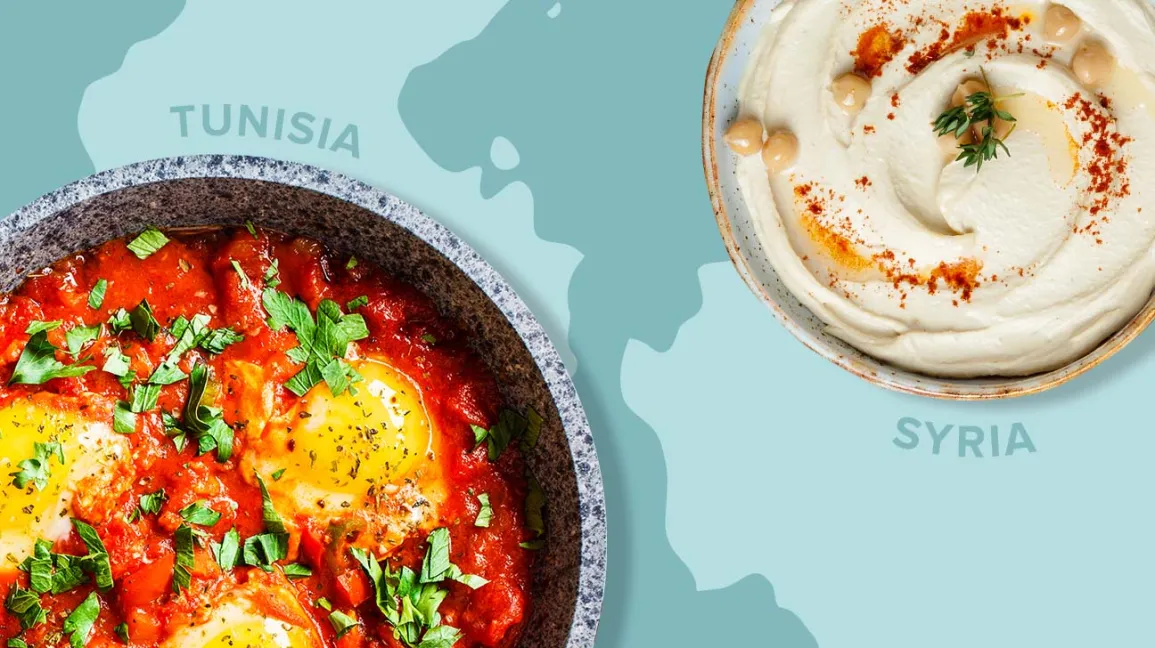Table of Contents
The Mediterranean diet has gained tons of popularity over the past few years and has even been touted as one of the healthiest diets you can follow to live longer, reduce your risk of heart disease, and lose weight. However, there’s a huge problem with the way most people are going about following this diet that’s actually causing some pretty serious issues. Read on to find out more about why it’s important not to make these same mistakes when it comes to your Mediterranean diet plan.

The Shocking Problem with the Mediterranean Diet We’re All Ignoring
The Shocking Problem with the Mediterranean Diet We’re All Ignoring
What Is The Med Diet
The Mediterranean diet is a diet heavy in fruits, vegetables, fish and healthy fats. It’s known for helping people lower their risk of heart disease and stroke. Because it includes nutrient-rich foods like nuts, whole grains, beans and olive oil—and very few refined foods—the Mediterranean diet has also been tied to longer life spans.
There’s no one Mediterranean diet, the term generally refers to Southern European cuisine as well as traditional eating habits in Greece, Italy and Spain. But researchers have pointed out that the countries with the highest levels of healthful living are all located in close proximity to the sea — many of the islands.
How Does It Work
The meal plan for a traditional Mediterranean diet is easy to follow, requiring no calorie counting. The diet focuses on simple foods that are naturally low in fat but high in fibre and nutrients. It emphasizes fruits, vegetables, whole grains, legumes and fish while discouraging red meat, sugar and sweets. Meals are served in smaller portions, encouraging a healthy balanced diet rather than simply restricting calories.
is consumed with meals as part of one of its health benefits. A serving size is typically three glasses a week of wine (one glass per day). Other alcoholic beverages should be consumed very sparingly or not at all since they do not provide any health benefits similar to wine. This can include beer and mixed drinks which lack nutritional value but add extra calories.

The Shocking Problem with the Mediterranean Diet We’re All Ignoring
How Do I Know If This Is Right For Me
If you don’t have a family history of diabetes, heart disease, or cancer, and live in a region where olive oil is plentiful, then yes—this diet may be for you. But if you have a genetic predisposition to these conditions, this diet is not advisable. That said, there are ways to tweak your diet so that it falls within these guidelines while still giving your body what it needs.
For example, by including plant-based proteins like beans, you can get the necessary protein without overeating meat. You could focus on healthy fats like nuts and avocados which both provide monounsaturated fats and unsaturated fats. As well, try to get your daily recommended dosage of fiber from fruits and vegetables as well as whole grains.
Why Is There So Much Confusion About This Way Of Eating
Did you ever see somebody on Facebook tell about how awesome their Mediterranean diet is? You might have noticed that lots of people from that part of the world enjoy longer life expectancies and fewer instances of diseases like cancer and heart disease. The Mediterranean diet, which we hear about a lot these days, can help with just about everything.
The diet has been a much-beloved regimen for years and has some redeeming benefits. Calling this a trend would not be appropriate; instead, this is a tradition dating back to antiquity. However, many people make the mistake of believing that to eat healthy means following a fad diet or juice cleanse. It’s crucial to conduct proper research before taking on any kind of restrictive diet or cleanse.

The Shocking Problem with the Mediterranean Diet We’re All Ignoring
What Are Some Of The Problems with Following this Diet?
Though many people agree that it’s connected to good health and longer lives, people need to pay close attention to what they eat to avoid becoming obsessive about food and unsatisfied with portion sizes. The downside to this diet is that it is so pervasive and celebrated, that many of the diet plans can actually encourage obsessive thoughts and behaviour when it comes to food, resulting in unhealthy relationships with the body.
To minimize this issue, follow the Mediterranean diet instead, where there are so many more ingredients to work with, that any correlation to American diets with lots of sugar and processed foods have been cut out. In other words, people should be focusing on healthy, nutrient-dense foods, not unhealthy, nutrient-depleted ones. One downside to the Mediterranean diet is the prohibitively high price associated with it. If you want to make sure you are benefiting from this diet, you’ll need to buy fresh produce daily and cook every meal from scratch.
How To Fix These Problems so You Can Get Back On Track
The combination of carbs and fats in olive oil contributes to weight gain in a number of ways. Most importantly, it causes insulin resistance and increases your overall calorie intake. If you want to enjoy more healthy fats without sabotaging your health or weight-loss goals, opt for monounsaturated fats instead—they’re less calorie-dense and still give you that heart-healthy oomph.
A good source of MUFAs? Avocados! They also have potassium, magnesium, iron, and vitamin C (which is great news since you won’t get any from that buttery bowl of pasta). Another easy fix? Skip some meals throughout your day: Every time you sit down for a meal or snack, think about what’s on your plate vs. what is missing.
Get in Shape with These 10 Exercises to Lose Weight
Top 7 Best Fruits with Most Vitamins – Fruits For Better Health
Junk Food For Weight loss – is it really a thing? Is junk food really as harmful as we think?